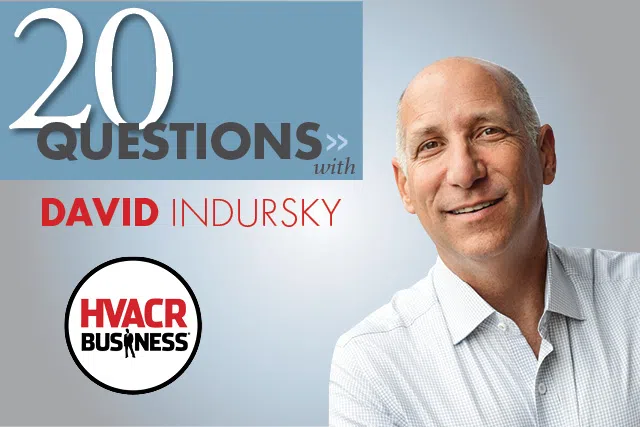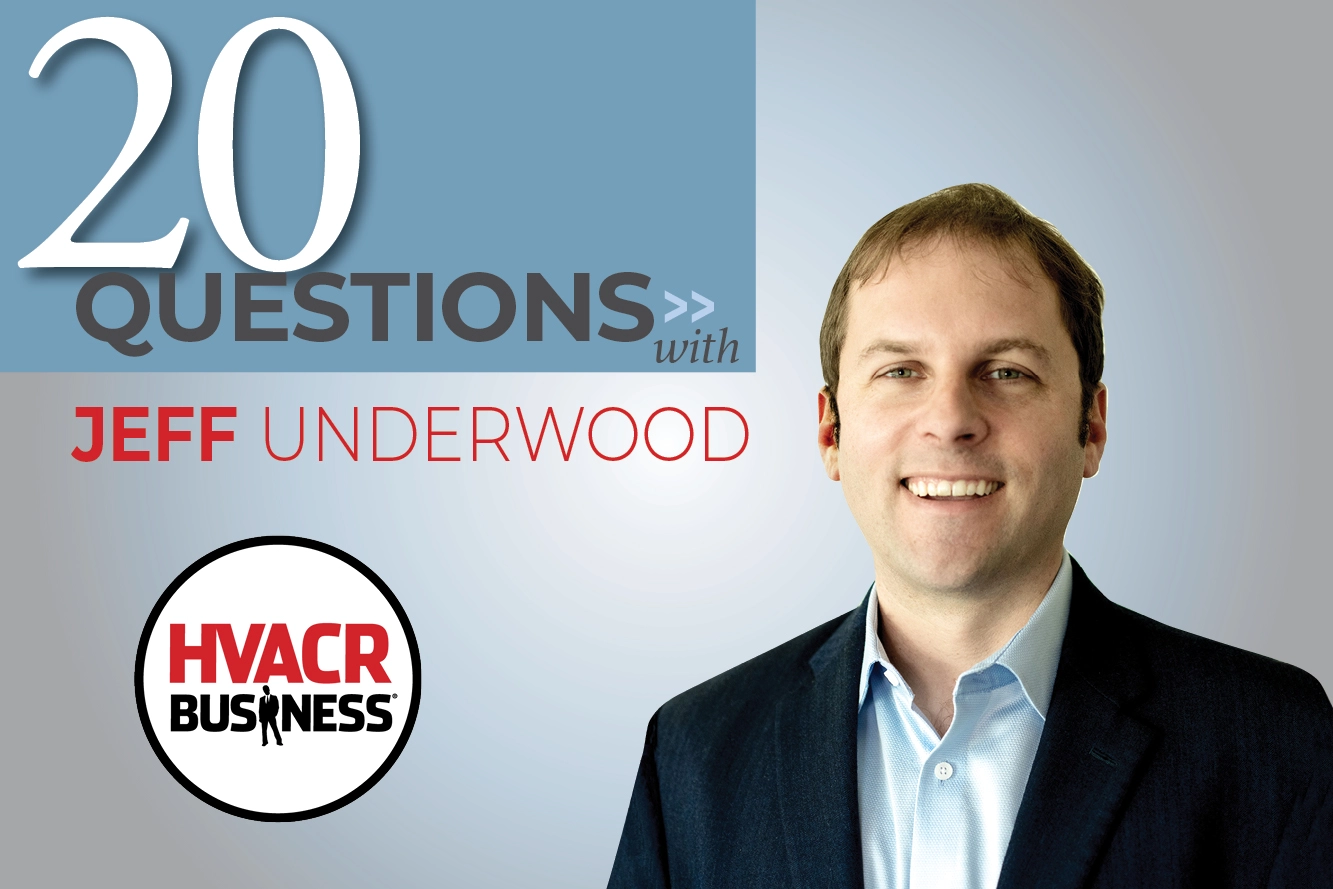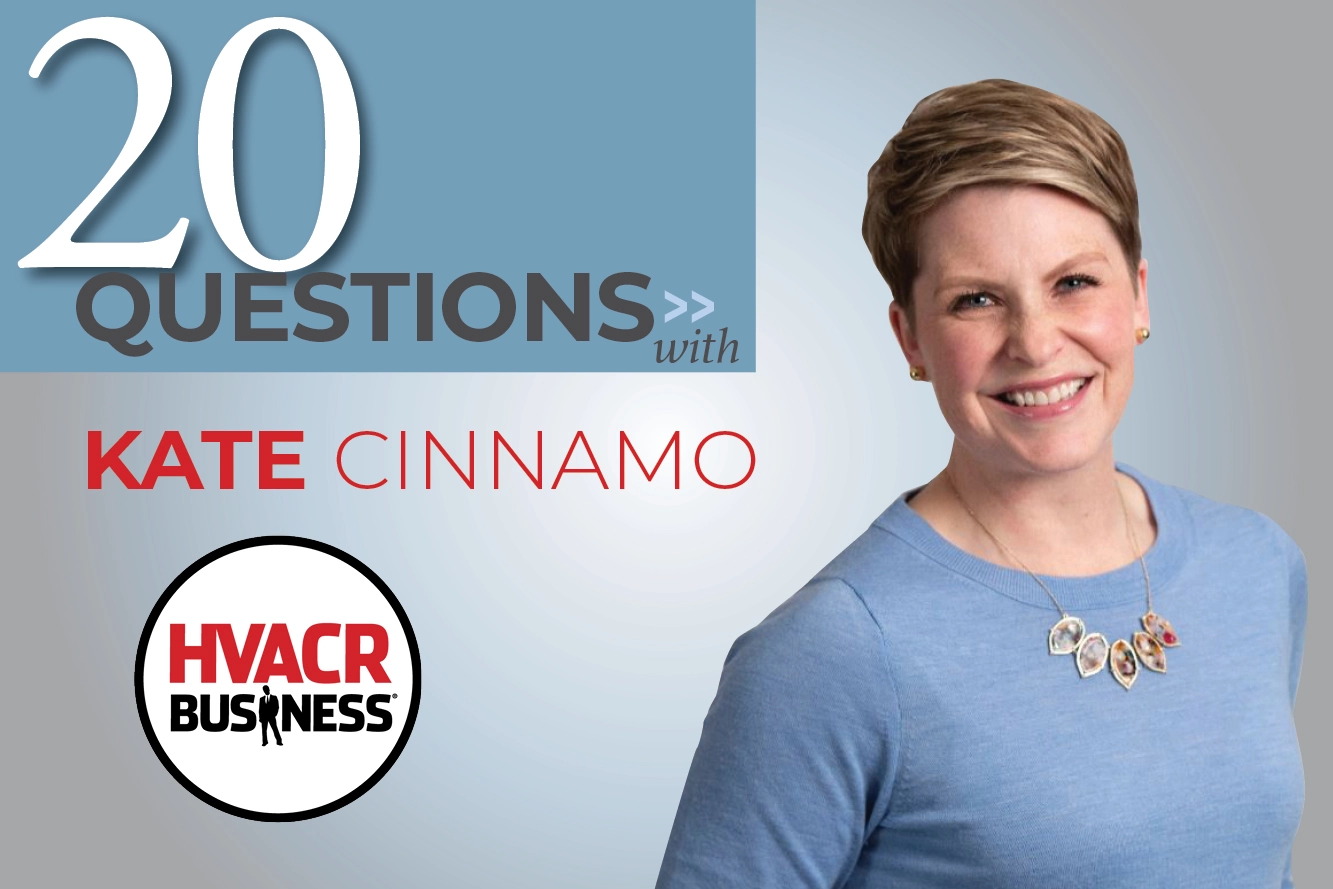We sat down with David Indursky, president of Encon Mechanical in Ocean, N.J. Indursky discussed recruiting, the effects of the coronavirus pandemic on business and doing the right thing.
1. What’s your background?
I was born into the business … I’m second generation. My father started the company in 1968. He’s 82 and still shows up every day. The running joke in the office is, my mother will kill me if I fire him.
2. Did you always know this is what you were going to do?
No, I really didn’t. I always enjoyed working in the trade, I enjoyed getting hot, sweaty, dirty, I enjoyed the money of it, and I enjoyed the work. Throughout college, I considered physical therapy school. The government was changing its perspective of how doctors were billing, and I really didn’t want to be in a career at that point where I was governed by our government of what earnings could look like.
3. So how did you start out full-time?
I was a truck driver delivering parts. I worked in our sheet metal fabrication shop for quite some time. Back in the day, we did some track work, so I did my fair share of hot residential attic spaces and learned quickly I didn’t want to do that as a career. Then I became a junior estimator, worked my way up into estimating and then ultimately into project management.
4. What was the company like then?
When I started in the 1990s, we were doing an awful lot of public planning spec work and doing well at it. But the market shifted and we decided it was a better business mix to be in the private sector, and really completely left the public sector by 2000.
5. What’s your business mix now?
We are a commercial-industrial contractor. We serve the better part of New Jersey … about a $35 million company at this point. We do a lot of fast track commercial interior Class A work and a lot of work within hospitals and surgical centers. We have about 27 service trucks on the road. We do built in automation with our in-house people.
6. What’s your management style?
I am not someone that’ll micromanage someone’s job. I use the expression quite candidly that if my son told me he brushed his teeth, I don’t go check the toothbrush to make sure it’s wet. We live on the honor system. If you say, “It’s done,” it’s done. If you say, “It’s not,” be honest with us. Nothing’s perfect.
7. How important is trust in your team?
As I’ve grown and struggled and failed, I’ve learned ways not to do it. I’ve built a good team that I can delegate to and have a lot of good trust in the team. I really believe that to grow and be successful beyond a small shop, it’s about the people and the systems. If you can’t trust and delegate to that process, growth is really a recipe for failure at that point.
8. How do you motivate your team?
We motivate by good praise, we motivate by recognition. We have a lot of different ways to recognize our team publicly and privately. I’ve learned over the years, most people are more motivated by recognition and things outside of just money.
9. What’s the boomerang program?
We have people who will leave, because they feel they have a better opportunity to do something else. If they leave the right way, we give them an opportunity to come back. Many of them come back and say, “Wow, you really treat us well.” You’ve got to find that out for yourself, because people think the grass is greener.
10. Does that make recruitment easier?
Our philosophy is we’re always hiring, always looking for good people, always looking for talent. We’ve got a program internally that if you bring on new talent, we reward you for that financially. We obviously work with some recruiters, but we’re very involved in the trade schools. We want to get them young. We want to train them with what we feel are best practices.
11. What’s the key to recruiting?
There are great ones out there. You got to find them. You find them by always looking. There are a lot of guys — men and women — in the blue collar field that make a very nice living. They work an honest day, they get paid for it and guess what … They can’t outsource what we do for a living. It’s really a space that is recession proof.
12. Do you place emphasis on training?
We do it every day. Normally this time of year, we’re doing training once a week in our training center. We’re talking about how we could open that up again in a safe environment, but we can’t miss our fall months on making sure our young talent, they need to know how to check heat exchanger. It’s incumbent on our senior guys ... go train the 22-year-old, because you were once 22.
13. How important is safety?
We’re in a dangerous business. We do not want anybody getting hurt. One of our core values is safety. We take it uber seriously. For it, we’ve got to train.
14. Where do you see future growth?
The world of integration. Everyone talks about making their house smarter, they’re building smarter, but doing that, we play a lot in that space. We see it actually starting to happen. The world of, you drive up to your house and it knows you’re home, and it turns on your lights and your oven and your stereo ... The next generation of building owners and homeowners, they all expect it.
15. What do you find most rewarding?
I love seeing the growth and the maturing of our young team. When we get someone who is young here and at five, 10 years later, is a senior journeyman, making a great wage, really out on his own, running his own truck and his own accounts … I love seeing that. I also really like when we solve someone’s problems.
16. How did Encon become so good at solving problems?
It’s about the team. I wouldn’t pretend to be near the smartest one ... When you talk technical competency of my team, I’m probably not even in the top 10. We’ve got a lot of smart people and they figure this stuff out. We put the right people in the room, we kick the egos out and they work toward solutions.
17. Who’s your biggest role model?
Really having the honor and the privilege of working in a family business, working with a father that is full of wisdom and willing to give back and still be able to communicate outside of business. That really makes him a role model, especially in a generational business.
18. What’s his best advice?
Do the right thing — Treat everyone with the same respect and honesty, and life will be good to you.
19. How has the pandemic affected business?
When we shut down that Sunday night, when the rest of New Jersey shut down, we told everyone, “Stay home.” People came in and grabbed computers and monitors, hardware, phones, printers and we became a virtual company. When we say overnight, it was literally overnight, because we were still running service calls, but no one was allowed inside the building. I never thought we could be virtual. I’m a person that likes to see people.
20. Are you talking more about IAQ and ventilation with customers?
We have probably three people on our team dedicated to the conversation. That’s all they’re doing.






